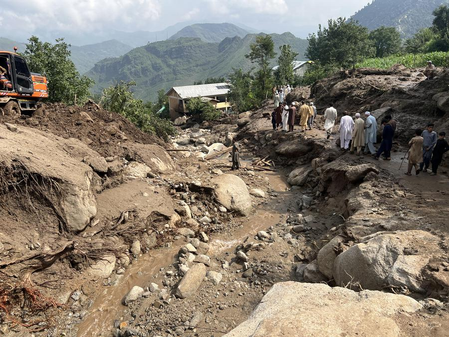Islamabad: As Pakistan grapples with one of the deadliest spells of torrential monsoon rains in its history, relentless downpours, flash floods, and landslides have killed at least 657 people and injured nearly 1,000 since late June, local media reported Monday.
According to the National Disaster Management Authority (NDMA) data, of the 657 people killed in several rain-related incidents since June 26, 171 were children and 94 were women.
Among all the provinces, Khyber-Pakhtunkhwa (K-P) has been the hardest hit with 390 deaths, including 288 men, 59 children, and 43 women.
Meanwhile, Punjab reported 164 fatalities, the majority being children, while Sindh recorded 28 deaths, Balochistan 20, Pakistan-Occupied Gilgit-Baltistan (PoGB) 32, Pakistan-Occupied Kashmir (PoK) 15, and Islamabad recorded eight casualties in the rain-triggered disasters.
The NDMA’s National Emergency Operations Centre (NEOC) announced an emergency alert predicting intense rainfall across several regions, including Punjab, K-P, Balochistan, PoK, and parts of Sindh.
The warning came following the widespread destruction in K-P, where more than 300 people were killed in one of the most catastrophic deluges across the province.
According to the K-P Provincial Disaster Management Authority (PDMA), until Sunday, the death toll from Friday’s cloudbursts, lightning strikes, and flash floods climbed to 323, with 209 fatalities in Buner district, the epicentre of the disaster.
Among the deceased are 273 men, 29 women, and 21 children, while the injured include 123 men, 23 women, and 10 children.
The PDMA reported that 336 houses have been damaged so far in the disaster, with 230 partially destroyed and 106 completely demolished in the province.
“Connectivity with several settlements in PoGB and K-P has been severed due to flash floods and landslides. Search operations for missing persons are ongoing, and more relief packages will be dispatched tomorrow,” leading Pakistani daily The Express Tribune quoted NDMA chairman Inam Haider as saying.
The NDMA advised citizens to refrain from non-essential travel and stay vigilant amid changing weather conditions.
IANS






































